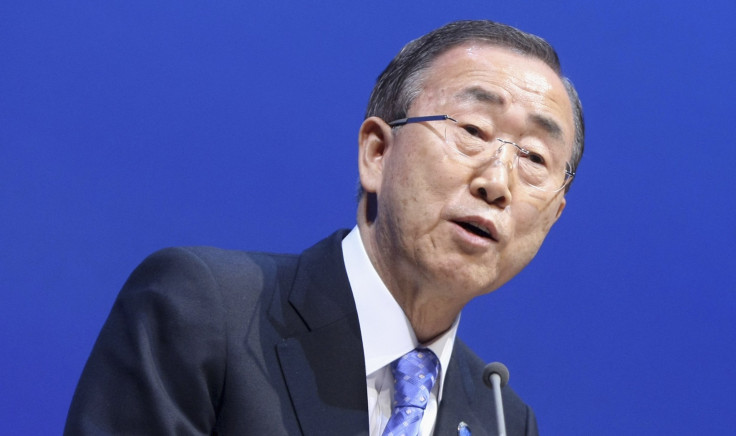U.N.'s Ban Launches Bid to Stamp Out Cholera in Haiti

U.N. Secretary-General Ban Ki-moon launched a $2.2 billion initiative on Tuesday to stamp out cholera over the next decade in impoverished Haiti, where an epidemic has killed thousands of people and been blamed on U.N. peacekeepers.
Cholera - an infection causing severe diarrhea that can lead to dehydration and death - has killed some 7,750 Haitians and sickened almost 620,000 since October 2010. It occurs in places with poor sanitation and can be treated with clean fluids.
An independent panel appointed by Ban to study the epidemic issued a May 2011 report that did not determine conclusively how the cholera was introduced to Haiti. But the U.S. Centers for Disease Control and Prevention in June 2011 found that evidence strongly suggested U.N. peacekeepers from Nepal were the source.
The World Health Organization projects up to 112,000 cases in Haiti during 2012.
"Haiti has seen a dramatic fall in infection and fatality rates. But this will not be a short-term crisis. Eliminating cholera from Haiti will continue to require the full cooperation and support of the international community," Ban said.
Ban said Haiti needed $500 million to implement the first two years of the initiative, which will also address the spread of the cholera outbreak to neighboring Dominican Republic.
"The main focus is on the extension of clean drinking water and sanitation systems," Ban said. "But we are also determined to save lives now through the use of an oral cholera vaccine."
"Because global vaccines are in short supply, we will first target high-risk areas: densely populated urban areas and rural areas far removed from health services," he said. "As production increases, the vaccine effort will expand its reach."
Ban announced that $215 million in existing funds from donors would be used to support the initiative, while the United Nations would contribute $23.5 million on top of $118 million the U.N. system has already spent on the cholera outbreak.
"I will use every opportunity in the months ahead to mobilize even more funding," Ban said.
Haiti's Prime Minister Laurent Lamothe told Reuters in September that the epidemic was "regrettable" but had been brought under control.
Haiti is still struggling to lift itself from the rubble left by an earthquake in January 2010 that killed about 300,000 people and left more than 1.5 million homeless. Lamothe said 1.2 million of those had been moved back into homes, while the United Nations said 390,000 were still living in tent camps.



























